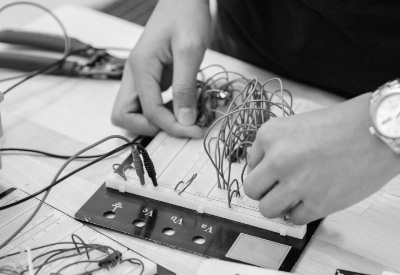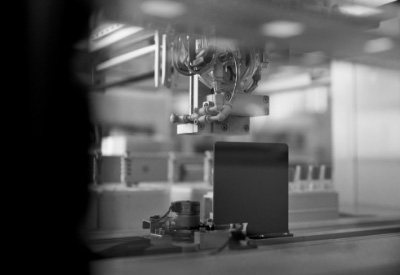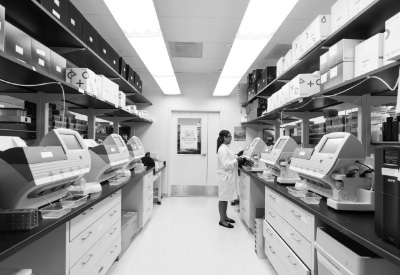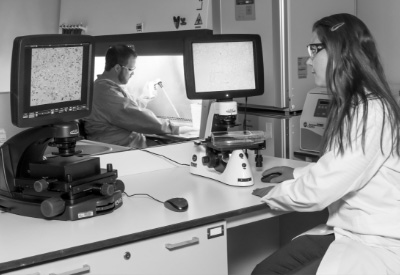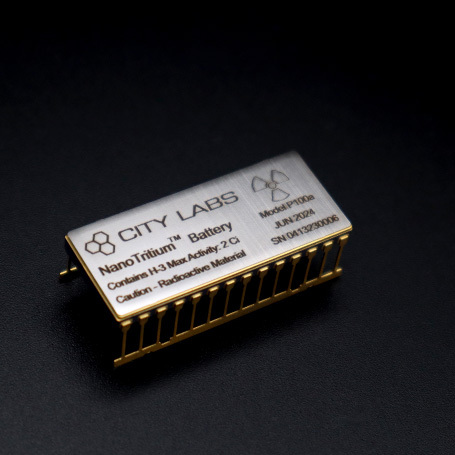
What Is a Tritium Betavoltaic Battery?
A tritium battery is a betavoltaic cell that harnesses the decay of the hydrogen isotope tritium to generate electricity. The technology uses semiconductor junctions to convert the kinetic energy of beta particles into electrical power, similar to how solar cells convert light into electricity.
Tritium betavoltaic batteries are being used to power small devices that serve a variety of functions. While the battery models may be modified to suit specific applications, tritium batteries share the characteristics below.

Tritium Battery Applications
City Labs’ NanoTritium™ battery technology has potential applications in numerous markets where long-lasting, continuous, low-power sources are crucial to mission success and operating requirements. These include:

Current City Labs Betavoltaic-Ready Supported Applications
Our P100 Series NanoTritium™ Betavoltaic Batteries have been in use in our laboratories and commercial applications since 2008. Yes, the same batteries have been working for more than a decade under different conditions to power different devices.
Our batteries supplement wearables, power sensors, semiconductors, switches, and more. And we’ve barely scratched the surface of possibilities.

Tritium Batteries in Extreme Conditions
City Labs’ products are as capable of operating in extreme environments as they are in regular ones. The consistency and reliability of radioisotope decay could benefit a variety of research applications that require observation in high or low temperatures. Electrochemical batteries are significantly influenced by the surrounding temperature and cannot guarantee a sufficient charge for as long as tritium batteries under these conditions.

Tritium Batteries for Leadless Cardiac Pacemakers
City Labs is developing tritium batteries to power leadless cardiac pacemakers that will last twice as long and will be 1/6 of the current size. These pacemakers’ size, lifespan, and safety make them serious contenders for medical applications. They can be implanted into the body with ease and do not cause damage to the surrounding area.
Tritium pacemaker batteries can keep the necessary medical device functioning for more than double the time current batteries can. This will decrease the number of medical procedures required by a patient with a cardiac pacemaker.

Tritium Batteries for Small Modular Reactors (SMRs)
There are new challenges associated with trends around clean nuclear energy. One of those challenges is monitoring the efficiency and status of nuclear reactors in order to prevent meltdowns or malfunctions.
Tritium batteries may be used to power sensors in small modular reactors (SMRs) that help engineers keep track of dangerous situations. The ability to withstand high heat and other forms of radiation makes tritium an ideal power source for SMR sensors.
There is almost always an opportunity to improve upon current technology. We believe betavoltaic power sources are the next step in microelectronic batteries.
Characteristics of Tritium Betavoltaic Batteries

Safe for commercial use
Tritium has a half-life of 12.3 years, and it emits beta particles until it reaches a stable form. Tritium betavoltaic batteries are relatively benign compared to other forms of nuclear batteries. The radiation cannot penetrate a thin metal protective barrier, making it safe for commercial use.

Lower operating temperature
Other radioisotope batteries rely on creating temperature differences for thermoelectric conversion. Betavoltaic cells, however, use similar principles to photovoltaic solar cells and use less tritium than thermoelectric generators. This lowers the operating temperature of batteries and improves charge consistency.
Compact and adaptable in size
Betavoltaic batteries can be made in a variety of sizes and shapes; they are designed with semiconductors and other small components that allow for compact and adaptable models and the ability to fit a specific application.

Low Maintenance
Tritium betavoltaic batteries do not require frequent maintenance or replacement.

Resistant to Extreme Temperatures
The power output for tritium batteries is constant and resistant to extreme temperatures between -50º C and 150º C.

Tritium Battery Power Output
Tritium batteries are designed primarily for low power, but high energy, applications. The steady conversion of beta decay produces nanowatts/microwatts of power. A fresh tritium battery can output 100 microwatts of power. After about 20 years, the same battery will still output over 32 microwatts of power.
A tritium battery can provide power to a more demanding device by trickle-charging secondary power storage and operating on a duty cycle.
Limitations of Tritium and Betavoltaic Batteries
Power output is a consideration with tritium-based batteries; these batteries can provide consistent low power. Beta particles are safe because they are less energetic, which means their kinetic energy is lower than some other types of radioactive particles. That’s why City Labs focuses on betavoltaic batteries for microelectronic devices. These devices do not need extreme power and are therefore perfect candidates for our tritium power sources or tritium micropower sources.
Accessibility of Tritium Batteries
Even though tritium is not as common as elements that may be used in electrochemical batteries, it is typically easier to acquire than other radioactive materials. It is mainly viewed as a form of waste and is less expensive.
City Labs is the leading developer of tritium batteries. Without years of specialized training handling radioactive materials and engineering batteries, you will not be able to make a tritium battery with the capacity and durability of our product.
City Labs’ NanoTritium™ Batteries
Here at City Labs, we develop high-quality commercially available tritium batteries. Since 2008, our P100 series batteries have been functional in laboratories and other practical scenarios. We are currently in the process of developing our P200 series batteries, which will further improve upon the existing technology.
The potential applications for NanoTritium™ batteries extend well beyond what we have done so far. These batteries are capable of powering pacemakers, monitoring deep wells for long periods of time, and even powering microelectronic devices in space. When there is an opportunity to take on a new partner, we customize our battery to meet their required specifications. This allows us to branch into different industries and accommodate a variety of clients.
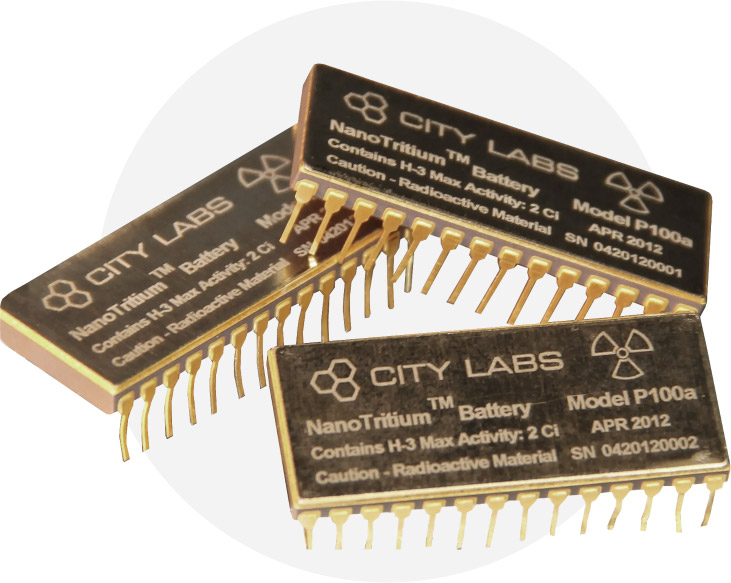

Check Out City Labs’ Tritium Battery
We are continuously improving our batteries’ capabilities and expanding upon their use cases. By increasing the output power, the batteries will be able to generate electricity for larger, more demanding devices. Through customization and small modifications to different packages, the batteries will be able to easily integrate with a multitude of unique systems and intelligent sensors.
Tritium batteries are a clean and effective long-term source for low-power devices. Finding new tritium battery applications is mutually beneficial for City Labs and our partners. We want you to have the necessary components to achieve your objective. Whether you are developing an embedded medical device that could run longer on a betavoltaic cell or you are trying to monitor the environmental conditions of an abandoned well, we can help you.
Fill out our contact request form to schedule an appointment with City Labs CEO, Peter Cabauy, for more information.
The Nuclear Battery Company With a Vision
Ready to power your next innovation or learn more about our technology?
Contact Us Today